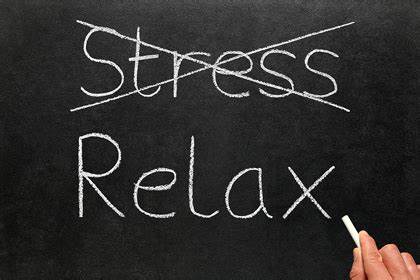Stress is a part of life, and it’s something that everyone experiences. It’s a natural reaction to challenges and situations that demand our attention and effort. However, when stress becomes a constant presence, it can wreak havoc on our relationships. Whether it’s financial worries, work pressure, or personal issues, chronic stress can take a toll on our emotional and physical well-being, leading to a breakdown in communication, increased conflict, and even the end of a relationship.
In this article, we’ll explore why stress kills relationships, how it affects our behavior, and what we can do to mitigate its impact.
Stress and Relationships: The Connection
Stress is a natural part of our lives, and it can be both good and bad. Positive stress, also known as eustress, is the type of stress that motivates us to take action, meet deadlines, and achieve our goals. Negative stress, or distress, is the type of stress that overwhelms us and causes negative emotions and physical symptoms.
Our bodies use the fight or flight response when we are stressed. Our heart rate increases, Our breathing becomes more rapid, our heart rate rises, and our muscles tighten.. While this response can be helpful in dangerous situations, it’s not ideal in everyday life.
Chronic stress can lead to a host of negative consequences, including anxiety, depression, high blood pressure, and heart disease. In addition, stress can also harm our relationships, causing conflict, communication breakdowns, and emotional distance.
The Effects of Stress on Relationships
Stress can affect relationships in many ways, including:
- Communication Breakdowns: When we’re stressed, we’re less likely to communicate effectively. We may lash out, become defensive, or withdraw from our partner. Misunderstandings, hurt feelings, and animosity are all possible outcomes of this.
- Increased Conflict: Stress can increase conflict in a relationship. Small disagreements can escalate into full-blown arguments when one or both partners are stressed. Stress can also cause us to become more critical and judgmental of our partner, which can lead to a breakdown in trust and intimacy.
- Emotional Distance: Chronic stress can cause emotional distance between partners. When we’re stressed, we may become less affectionate and less interested in spending time with our partner. Loneliness and feeling disconnected can result from this.
- Physical Distance: Stress can also cause physical distance between partners. When we’re stressed, we may be less interested in sex or physical intimacy, which can strain the relationship.
- Lack of Support: Stress can also lead to a lack of support in a relationship. When one or both partners are stressed, they may not be able to provide the emotional or practical support that their partner needs.
How to Mitigate the Impact of Stress on Relationships
While stress can be detrimental to relationships, there are ways to mitigate its impact.
Communicate: When stress is affecting your relationship, it’s important to communicate openly and honestly with your partner. Be willing to share your feelings and concerns, and listen to your partner’s perspective. Engage in active listening and make an effort to comprehend their perspective.
Practice Self-Care: Taking care of yourself is essential when dealing with stress. Make sure you get enough sleep, eat a healthy diet, and exercise regularly. You may also want to consider practicing relaxation techniques like meditation or yoga.
Set Boundaries: If stress is causing conflict in your relationship, it may be helpful to set boundaries. Identify the specific areas of your life that are causing stress and work with your partner to find solutions that work for both of you.
Seek Professional Help: If stress is having a significant impact on your relationship, consider seeking professional help. A specialist or instructor can assist you with recognizing the underlying drivers.
Individual counseling and couples counseling can both be effective in helping to mitigate the impact of stress on relationships.
Individual Counseling
Individual counseling can be helpful if stress is causing emotional distress, anxiety, or depression in one or both partners. A counselor can help an individual learn coping strategies and stress management techniques that can reduce the negative effects of stress on their emotional and physical well-being. This can, in turn, improve their communication and ability to navigate challenges in the relationship.
Individual counseling can also help if one partner is experiencing stress that is unrelated to the relationship. If an individual is struggling with personal issues such as work stress, financial worries, or family problems, they may benefit from counseling to help them manage their stress and improve their overall well-being. When an individual is less stressed, they may be better able to contribute positively to the relationship.
Couples Counseling
Couples counseling can be helpful if stress is causing conflict, communication breakdowns, or emotional distance in the relationship. A couples counselor can help both partners learn effective communication skills and conflict resolution strategies. They can also help partners identify the sources of stress in their lives and work together to find solutions that work for both of them.
In couples counseling, partners can learn to express their feelings and needs in a constructive way, which can reduce misunderstandings and build trust.
Visit TalktoAngel to find the best mental health professionals available online. You can get the help you need by using this search engine for “Psychiatrist near me” or “Counselling online.”

